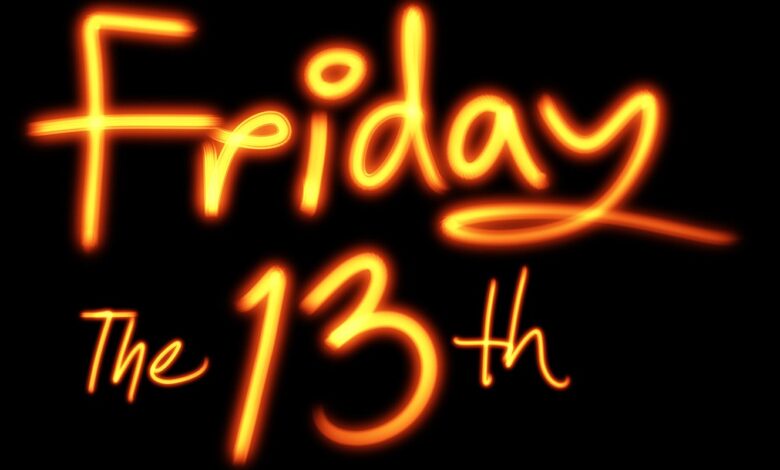
Friday the 13th is an inauspicious day, of legend, fear, and mythology. Such a curse has been maintained over the ages of cultural perception and folkloric tales, media, and historical events. Once a year, at least, and as many as three times a year, Friday the 13th gives rise to a broad range of reactions-from benign unease to full-blown hysteria. But what does the superstition behind this date carry at its heart? So let’s explore the history, causes, and cultural importance of Friday the 13th.
Historical Origins and Causes
Numerical Superstitions:
This superstition, known as “triskaidekaphobia”, centers on the fear of the number 13. The number 12 is, in most cultures, seen as a sacred number, representing completeness; there are 12 months in a year, 12 signs in the zodiac, and 12 hours on a clock. The number 13 is irregular and unsettling-it just doesn’t complete.
This unease can be witnessed in various historical contexts. For example, in the Roman culture, the 13th person who attended the dinner party was believed to bring bad luck. The number 13 has a close association with chaos and bad fortune in Norse mythology, especially in the tale of Loki, who was the 13th guest at a feast held in Valhalla and who caused the death of the favourite god, Balder.
Superstitions of Fridays
Friday has been long known to be an unlucky day in several cultures. According to Christianity, Friday is the day on which Christ was crucified, and it has always been associated with penance and suffering. Perhaps, it is that attachment of the day to penance and suffering has made people regard Friday as a bad day. Of course, when Friday appears with the number 13, this makes the superstition worse as the fear increases for Friday the 13th. Cultural Implications and Influence
Historical Events and Folklore:
So many historical events have led to this superstition of Friday the 13th. One event that should be noted is about the arrest of the Knights Templar on Friday, October 13, 1307. The Templars were a medieval Christian military order, and according to some history books, they were betrayed and arrested by King Philip IV of France. This has been over the years dramatized and misconstrued in such a way to make this day infamous for bad luck.
Another historical element is the ancient English and Medieval European belief that witches assembled in groups of 13 which preferred to operate on Fridays. While most of these were founded on hysteria and myths, they have managed to modify the day’s perception in modern times.
Modern Views:
In this modern era, Friday the 13th is no longer only interpreted and enacted on paper, in films, and mass media but also intensified. For example, the first film of horror in 1980 “Friday the 13th” best depicts how this day was already integrated into common culture. The movie then followed the rest of its sequel after the film’s success and buried the date in horror and bad luck forever.
The phenomenon of a self-fulfilling prophecy actually works behind the superstitions related to Friday the 13th. When people believe a day is unlucky, they subconsciously behave in ways that contribute to disastrous outcomes. This is an indication of numerous studies where individuals who believe in superstitions are most likely to undergo the bad luck they expect to happen.
Social and Cultural Reinforcement:
The ubiquity of Friday the 13th has made society, at large, a day of misfortune. As a further illustration, there are buildings that lack the 13th floor. They instead refer to the 14th floor. This is an example of “triskaidekaphobia avoidance,” where people try to avoid the superstition by not having anything associated with the number 13.
The other reason businesses and media use the fear of Friday the 13th is to market products or host themed events. This is business, which provides fuel for the superstition and keeps it in people’s minds.
Lack of Scientific Evidence
While many claim that this supposition is true, empirical evidence has never been found to validate the assumption that Friday the 13th is unlucky in any way. According to research studies, accidents and other unlucky events are nothing different on this date than on other dates. A UK-based study, for instance, by the National Accident Prevention Council did not indicate an increase on the number of accidents as seen on Friday the 13th vis-à-vis other Fridays.
Historical and Cultural Context: Unlike most, not all cultures view Friday the 13th as an unlucky day. For example, in Italy, Friday the 13th is looked upon with hopes and smiles, since the number 13 is believed to be lucky. Similarly, the Hispanic world itself doesn’t single out Friday the 13th; rather, Tuesday the 13th is thought of as being the unlucky one.
Conclusion
Friday the 13th is a day enveloped in layers of historical events, cultural beliefs, and modern media influences. Its reputation as an unlucky day is deeply rooted in ancient superstitions about numbers and days of the week, historical occurrences such as the arrest of the Knights Templar, and the perpetuation of these beliefs through popular culture. However, there is no scientific evidence to suggest that this day is anymore unlucky than any other day. Understanding the origins and impact of Friday the 13th can help demystify the date and alleviate unnecessary fears associated with it.




